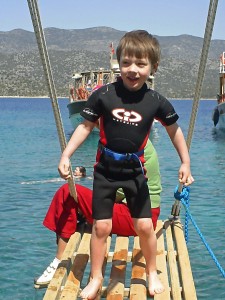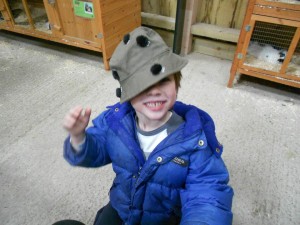NEW UPDATES AT BOTTOM OF PAGE
For my wife and I it was regression.
For the first two years of his life our son John was fairly typical of his age group. A bit slower in speech but not by much.
Just before his second birthday however things began to change. His ability to speak and the development of number of other social functions such as smiling not just halted but went backwards. a year later he was diagnosed with autism.
Since then I have always been interested in early signs of autism within the autism community.
So we have decided to run a short poll to find out a bit more about your experiences. It would be great if you could use the comments box below to share in a bit more detail about the early signs of autism or ASD in your child.
Many thanks in advance.
| Rarar85 | My 3 year old doesnt speak he say two words but never a string of words, these words then get replaced by new words such has juice mamma look yuk ouch once a new word comes along you know longer hear them. I have been told that he is asd BUT they dont have enough to give him a full diagnosed also telling me he has delepment behavoiur problem hes not bad he has a very good routine which nursey say cannt be changed and if it does it a stressful time for him i feel like i hit a brick wall |
| LynnShephard | I swear i could have written this myself about my 2 yr old. As well im 43 yrs old & a stay at home mom. I have infants & toddlers coming weekly as well. Ive had him to so many drs & they all claim he has “very good eye contact” however his speech at 14 months. He barely says 5 words that no one but me understands. However he understands everything you say to him. Smart as can be. I know in my heart there is something wrong w him. Also Thomas the Train is his all time favorite thing. Send me Facebook friend please Lynn Shephard |
| AlyssaLindley Osborne | My daughter would scream, whale, and was running (when she started to walk) to any door to get out at her Peds Dr.She wouldn’t let him touch her at all! I was so stressed I would sweat. We couldn’t take her out to eat, esp. To dark restaurants. We couldn’t get professional pics, she wanted to “go” as she always would say. She’s on Zoloft and what a different kid! Though she still gets a little apprehensive. |
| LeslieBond | Samantha asks what are the earliest signs of anxiety? This is how it was read on Face Book |
| SharonNJohnHooten | My 2 1/2 year old has a vocabulary of 2 words and still working on others daily. I noticed at 9 months he was gonna be a special little man. He’s smart as a whip but doesn’t speak, cuddle or socialize. He has severe separation anxiety as well! We have OT, speech, behavioral and play therapy 4 times a month and hoping for more! Worked really hard and got all my ducks in a row and have already been approved for his SSI so that should help a lot with therapies and school help! I am lucky to be a much older stay at home mom! It helps a lot!!! God bless all these little guys and I can’t wait to find his hidden talent! Right now he has a fascination with trains!!!! |
| lisalammert831 | I noticed my son was waking up every 45 minutes when he was just born. Dr told me it was natural but I has never experienced anything like it before. He sometimes wouldn’t sleep at all. Then as he got older he didn’t speak at all. That’s when I knew for sure something was not right. I ended up switching his dr because the one we had just said it was typical boy behavior. |
| BrittanyMcKillop | My 2.5 year old has a vocab of about 10 words. He doesn’t understand simple instructions either. Big behavioral issues. Always hurting himself or others. Very destructive. We noticed at about the age of 1… He opposed affection and showed no interest in anyone or anything else. He wasn’t saying any words and to get his attention was a HUGE effort. He has been diagnosed with Autism recently. |
| DVDspnr | When my autistic son was two weeks old, my wife tried to hold him in a carry on holding bag for babies that she put on her chest. ( we were going to travel). My son reacted strongly against holding him in that position close to her. We could not use that holding bag for him. We gave the bag away to a friend of ours who was expecting a baby. She had no problem using it for carrying her baby. This was the first instance that we noticed some was wrong. Way before he had other behavioral problems when he was growing old…Best regards |
| KimMcTaggartOsmar | We also noticed the lack of speech and eye contact at age 2. We were lucky that we had to put him I A prescreening for preschool and a lady they worked with an agency and she was there volunteering. She rushed him in. Had he not, god knows where we would be now. He has gone thru IBI at age 5 1/2 (yes it took that long to get him through all the wait lists); and graduated and was put I to mainstream schooling last year. He is now in GrDe 5 and 11 yrs old. With a TA but I. The class 80% of time. 😉 |





